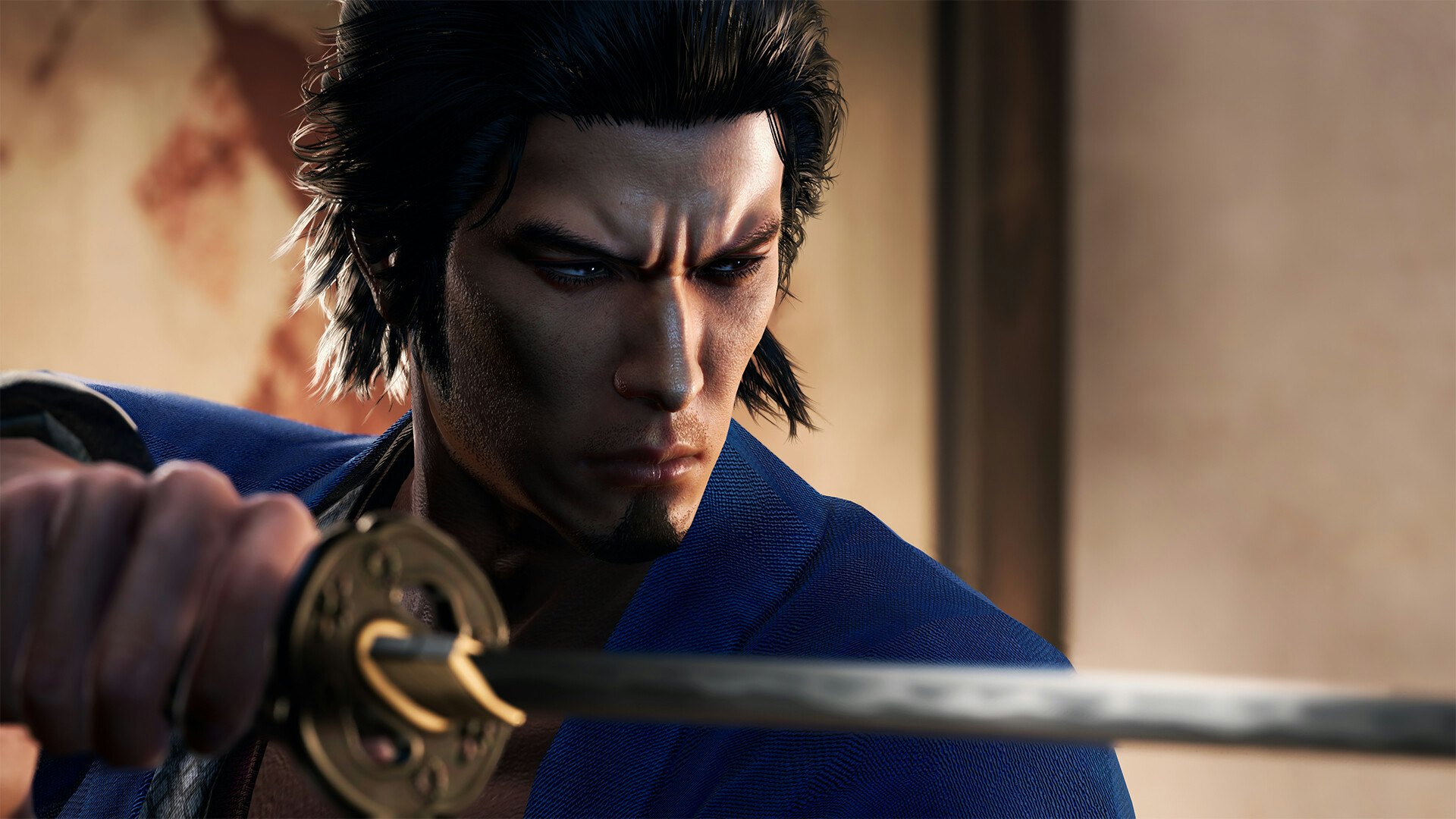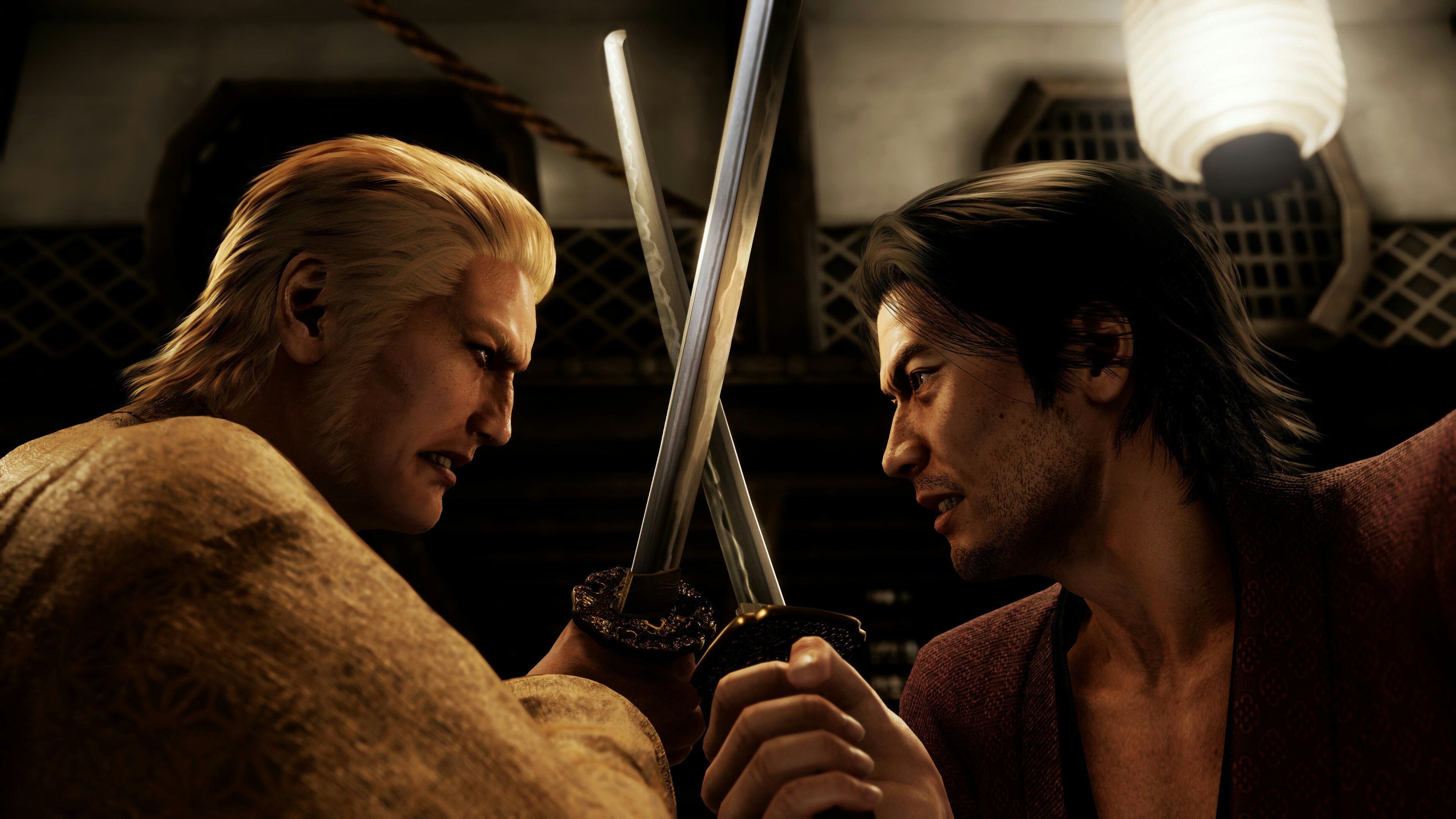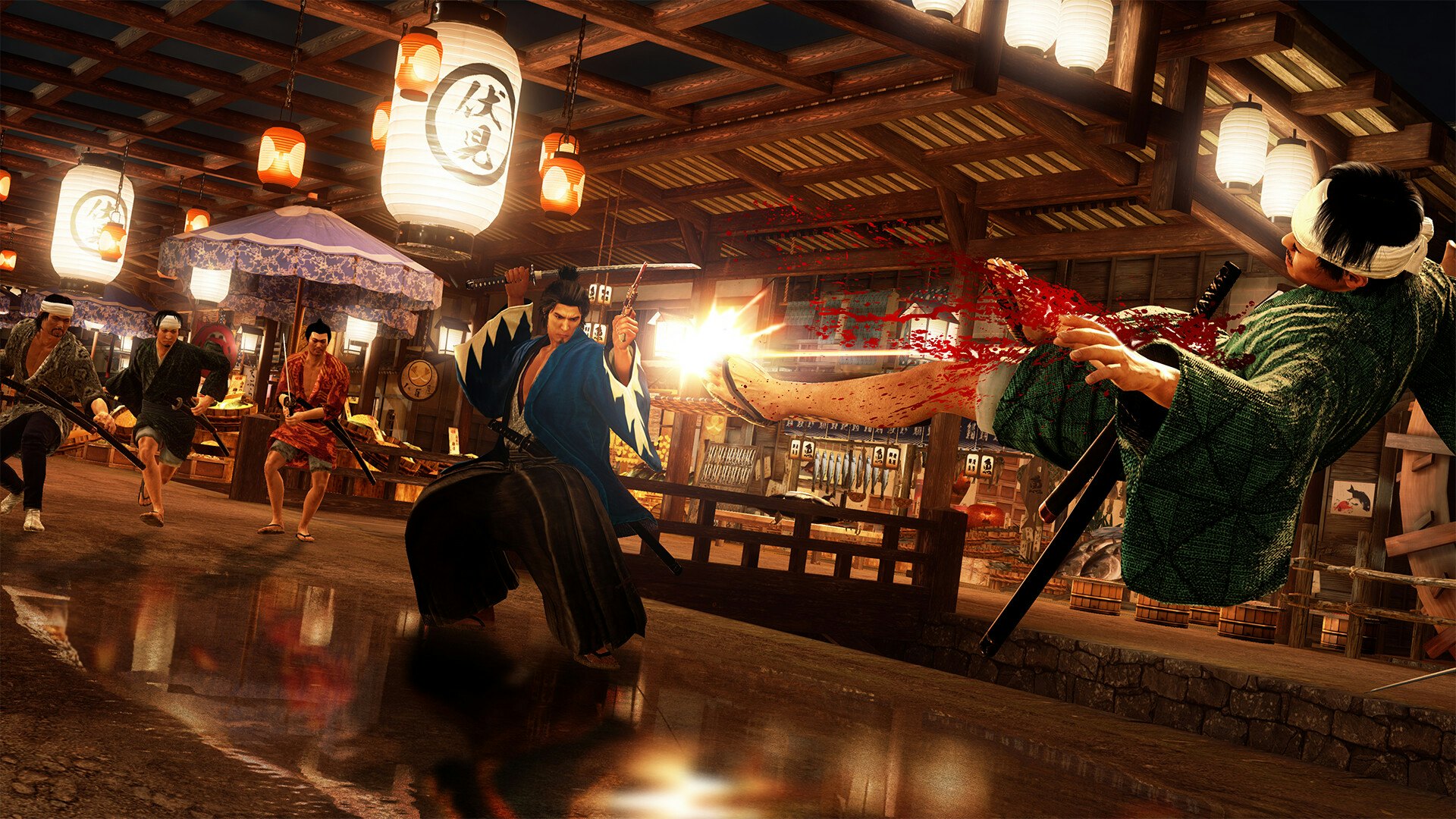
Believe it or not, Brad Pitt played a part in bringing the latest Yakuza game to American audiences. Well, sort of.
The Yakuza games are known for their specific (and sometimes absurd) depictions of life in modern Japan, expertly translated for American audiences by the studio’s localization team. But the crime-drama franchise faced a new challenge when it transposed its story to the 19th century in the 2014 title Like a Dragon: Ishin! Parts of the game take place in Kōchi, a region located on the island of Shikoku in southern Japan, but explaining the local Tosa dialect to foreign audiences proved difficult. Then, the team had a breakthrough.
“It reminded our translator-historian Izumi Thorn of Brad Pitt’s character from Snatch,” Senior Producer Marilyn Lee tells Inverse. “I think the team took that and ran with it.”
Released in the U.S. in February 2023, Like a Dragon: Ishin! Arrived on Xbox Game Pass in October, bringing the Yakuza series’ historical fiction spinoff to its biggest audience yet. Inverse spoke to the localization team at Sega of America to tell the story of how this unique 19th-century drama made its way to American shores.

Like a Dragon: Ishin! swaps the series’ usual haunt of Tokyo’s fictitious Kamurocho district in favor of 19th-century Japan in crisis. After the United States Navy forced Japan into diplomatic relations, uneasy international alliances might have saved Japan from immediate trouble — but the country’s nobles and leaders are too busy stirring up conflict.
Into all this steps Sakamoto Ryoma, a real historical figure who played an instrumental role in keeping Japan independent and ushering in the Meiji Restoration, which saw the imperial court’s return and Japan’s headlong rush into industrialization begin. Here, he’s “played” by series hero Kazuma Kiryu. Ishin brilliantly recasts its modern characters into historical roles like a digital theater troupe, while keeping just enough of the originals to make this new setting feel familiar.
“Changing up those voices for the sake of an archaic effect would only have distorted, rather than enhanced, their robust personalities,” Senior Editor Josh Malone tells Inverse.
Ishin includes modern series staples as well, even karaoke. The game takes advantage of its unique time period to throw in the original version of “Iji Sakura,” an updated version of which appeared in the first game. It presented a unique challenge for Malone, one that he tackled in a characteristically Yakuza way of finding a familiar touchpoint and letting the source material do the rest.
“I labored quite a bit over how to do Iji Sakura justice,” Malone says. “Eventually, it struck me how much the song’s theme, rhythm, and even the voice of Takaya Kuroda [Kiryu’s voice actor] evoked the folk ballads of Johnny Cash. After that, it all fell into place.”

All the careful attention to detail and inventive ways of presenting unfamiliar concepts can’t do much to save Ishin’s combat, however. Developer Ryu Ga Gotoku Studio might have updated the rest of the game, but combat is still based on a pre-Yakuza 0 system. It feels stale and restrictive compared to the series’ later games.
Ishin mitigates the outdated combat with Trooper Cards, a feature that lets Kiryu summon help from Kenny Omega, VTubers, and even a nugget of Yakuza history. The Japanese name of the chicken Trooper Card is Kokejiro, and Malone says he assumed this was the ancestor of Yakuza 0’s beloved rooster, Nugget. After careful consideration, he came up with a fitting name for the English version.
“I asked myself: What would be the ancestor of a chicken nugget? And thus, Karaage [fried chicken] was born.”

For the Sega of America team, Ishin’s challenges were nothing out of the ordinary. Senior Localization Producer Mason Hyodo tells Inverse that they approach every new game with the same drive to try new ideas.
“One of the main things motivating the localization group here at Sega of America is constant innovation,” Hyodo says. “What should we do to bridge the gap between Japanese and Western languages so that people all over the world can enjoy the same excellence as the Japanese version? We always strive to go one step higher and not cling to any notion that we have to do it like we’ve always done it.”
But don’t worry, that doesn’t mean the Yakuza franchise will ever abandon what makes it so great in the first place.
Hyodo continues: “In cooperation with our Japanese counterparts, we’re building the future while respecting the core elements of the series that fans have come to love, and neither us nor the dev team ever wants to lose sight of fan expectation. The series may change, but we’ll be proud of that change as long as it does so in the spirit of challenge.”







